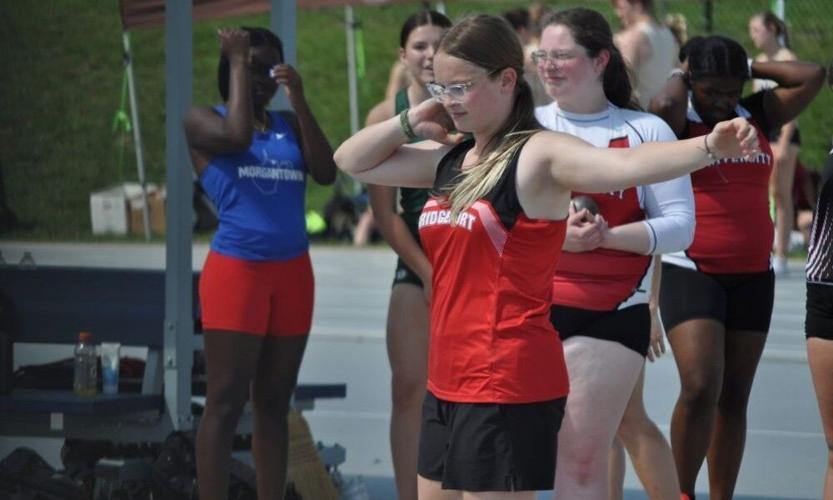
Becky Pepper-Jackson
CHARLESTON – West Virginia Attorney General J.B. McCuskey’s office has submitted a supplemental filing in State of West Virginia v. B.P.J. asking the U.S. Supreme Court to hear the case and uphold West Virginia’s Save Women’s Sports Act.
Last week, the high court issued a landmark decision in United States v. Skrmetti, upholding Tennessee’s law restricting gender-transition interventions for minors and affirming the State's authority to protect kids from risky and unproven medical practices. Now that Skrmetti has been decided, Attorney General McCuskey is asking the Supreme Court to hear B.P.J. and reverse the injunction from the Fourth Circuit Court of Appeals.

McCuskey
“We have always been confident in the merits of our case and defense of the Save Women’s Sports Act, which protects safety and fairness in women’s and girls’ sports,” McCuskey said. “The law is constitutional and complies with Title IX.
“While Skrmetti is a landmark decision, our specific question remains; that is why we are urging the Supreme Court, through our supplemental filing, to take our case and allow the women and girls of West Virginia to begin enjoying the protections of the Save Women’s Sports Act.”
In the Supreme Court brief, McCuskey’s office says West Virginia and 26 other states have “confronted a serious social debate and concluded that biological boys should not compete on girls’ athletics teams.”
“But the Fourth Circuit found West Virginia’s legislative effort lacking, citing Title IX and the Equal Protection Clause,” the brief states. “United States v. Skrmetti … disclaims any guidance on the Title IX question presented here, and the decision’s equal-protection analysis does not address critical questions unique to athletics.”
McCuskey says Skrmetti “did not shed light on the Fourth Circuit’s Title IX holding.” It also says Skrmetti’s “equal-protection analysis does not address the unique statutory classifications at issue here. West Virginia’s statute turns on sex. Tennessee’s statute did not.” It also says Skrmetti “leaves open a further question affecting the equal-protection analysis (of) whether transgender persons constitute a quasi-suspect class so that heightened scrutiny applies whenever some separation is thought to implicate them.”
McCuskey’s brief also says a remand will not resolve these circuit conflicts.
“Assume the unlikely scenario where the Fourth Circuit changes course on remand and holds that a law assigning athletic teams by sex does not differentiate based on transgender status or, alternatively, holds that transgender status does not constitute a suspect class,” the brief states. “Both circuit splits would remain: the first would move from 2–3 to 1–4, and the second from 4–2 to 3–3.”
In B.P.J., the State of West Virginia is defending the Save Women’s Sports Act, which protects biological female athletes and keeps female sports competitive for female athletes.
Last spring, the Fourth Circuit Court of Appeals blocked a West Virginia law banning transgender student-athletes from playing on teams consistent with their gender identity, finding the law violates the rights of Becky Pepper-Jackson, a transgender female track athlete.
“Offering B.P.J. a ‘choice’ between not participating in sports and participating only on boys’ teams is no real choice at all,” Fourth Circuit Judge Toby Heytens wrote in the ruling. “The defendants cannot expect that B.P.J. will countermand her social transition, her medical treatment, and all the work she has done with her schools, teachers, and coaches for nearly half her life by introducing herself to teammates, coaches, and even opponents as a boy.”
In April 2021, then-Gov. Jim Justice signed House Bill 3293 into law, barring transgender student-athletes from participating on the school athletic teams most consistent with their gender identity. The following month, the American Civil Liberties Union, the ACLU of West Virginia, and Lambda Legal filed a lawsuit challenging the law on behalf of Pepper-Jackson.

Morrisey
In February 2023, the Fourth Circuit blocked the state’s effort to kick Pepper-Jackson off the team as the legal advocates appealed a lower court ruling upholding the 2021 ban. And the following month, then-AG Patrick Morrisey asked the Supreme Court for an emergency motion allowing the state to enforce HB 3293 and kick Jackson off her middle school’s track and field team. The Court rejected that attempt in April 2023.
Last month, Pepper-Jackson, now a 14-year-old freshman at Bridgeport High School, competed in the state track and field championships. She earned a bronze medal in the Class AAA girls’ discus with a 122-foot, 11-inch throw. She finished eighth in the shot put as well.
“A boy is competing in girls’ sports at the high school state track meet in West Virginia,” Morrisey, who now is governor, said about Pepper-Jackson’s participation at the state meet. “It’s wrong and unfair. I’m again urging officials to keep separate scores so that the true winners can be awarded once we win in court.”
Last week, Morrisey also referenced the Pepper-Jackson case when discussing the Skrmetti decision.
“As the former West Virginia Attorney General who spent years defending women’s sports and protecting women’s safe spaces, I’m very grateful for today’s win at the U.S. Supreme Court,” Morrisey said. “With today’s victory, I am optimistic that West Virginia will soon be able to enforce our common sense law that prevents boys from competing in girls’ sports.
“More work remains to remove the injunction, but today represents a big step forward.”
U.S. Supreme Court case number 24-43












